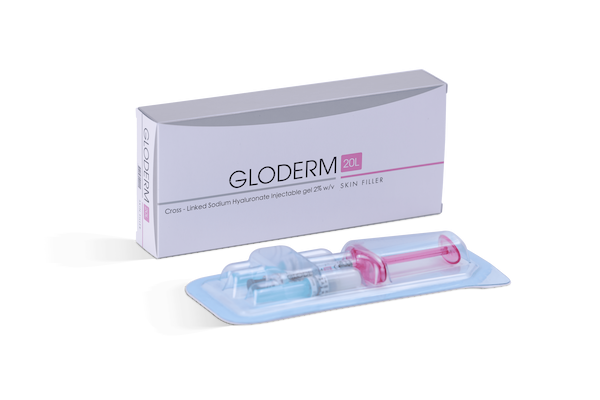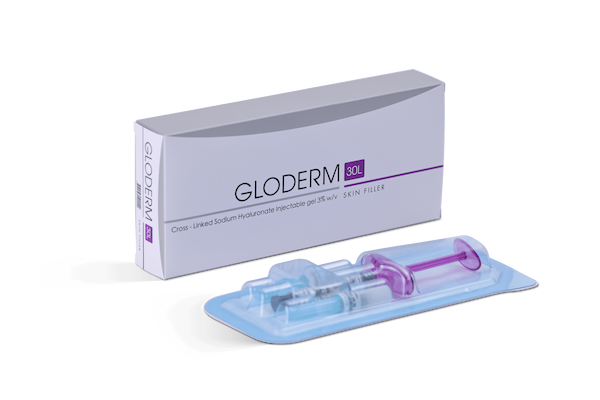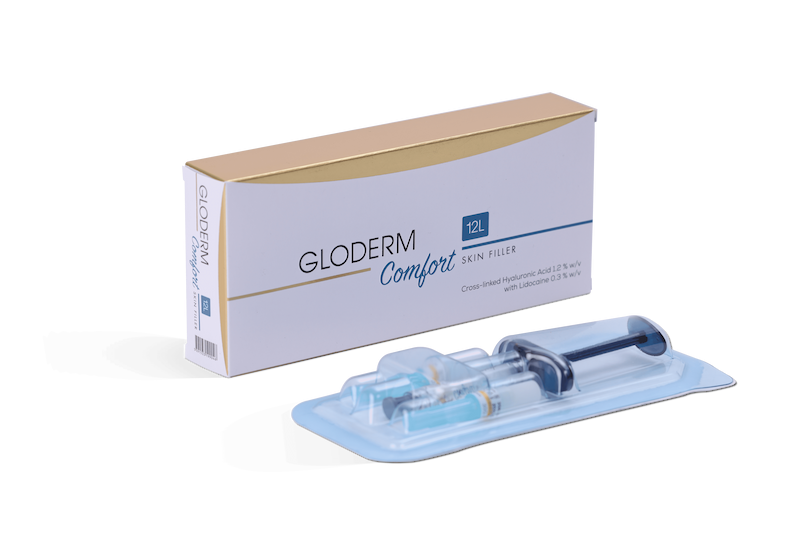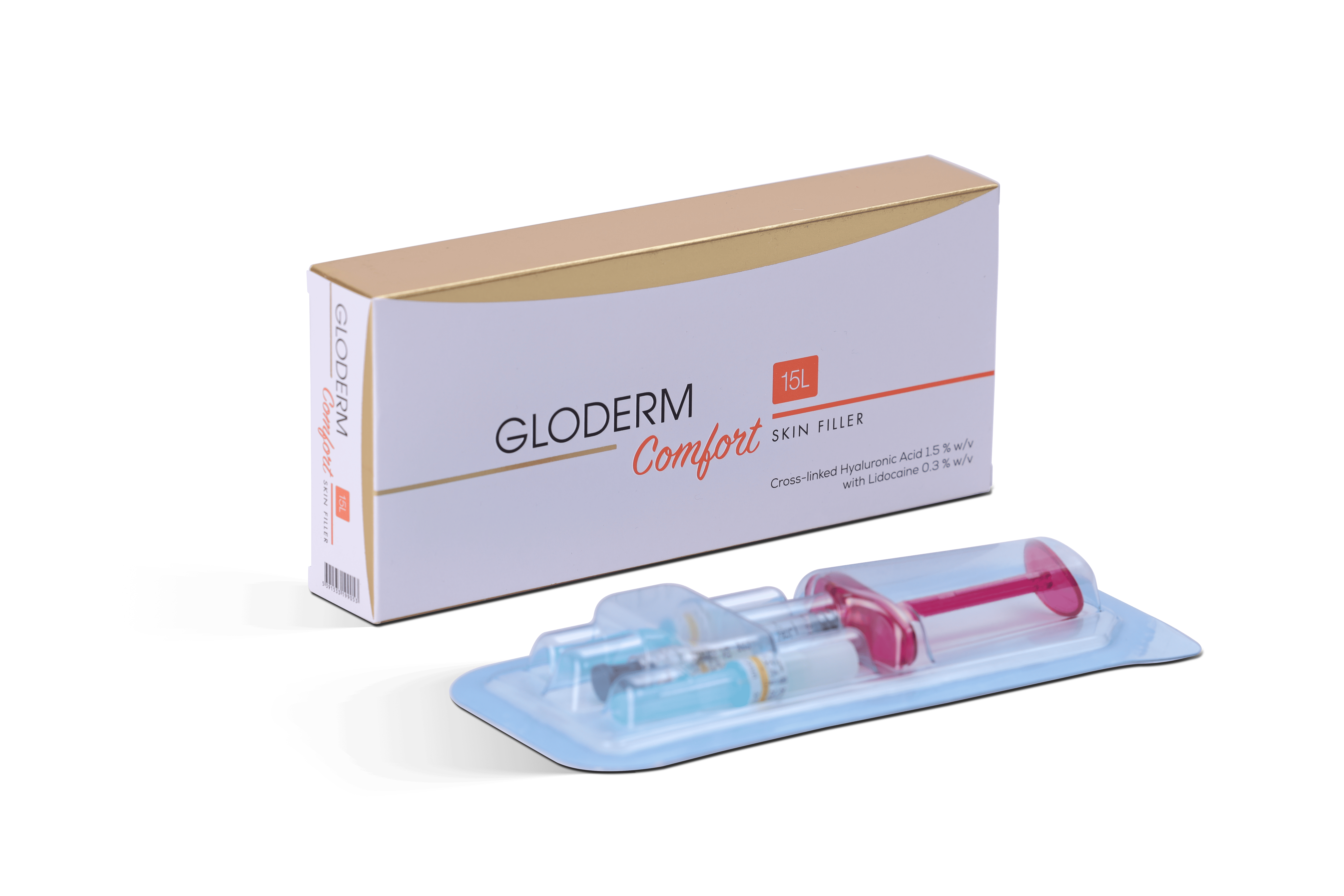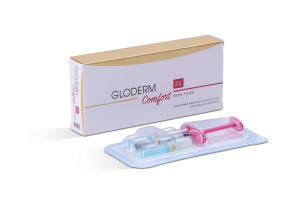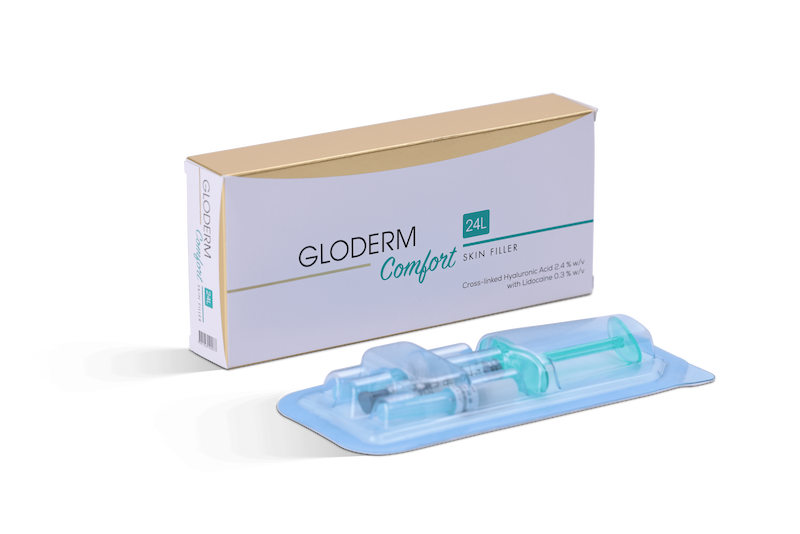Aesthetics
Gloderm Comfort Line
No products found in this company category.
PRODUCT RANGE – COMPOSITION
| Particulars | GLODERM 12L Comfort | GLODERM 15L Comfort | GLODERM 20L Comfort | GLODERM 24L Comfort | GLODERM 30L | GLODERM 20L |
|---|---|---|---|---|---|---|
| HA Concentration (mg ml) | 12 | 15 | 20 | 24 | 30 | 20 |
| Viscosity | Very low | Low | Low | Intermediate | High | Low |
| Suggested injection depth | Mid dermis | Superficial to mid dermis | Mid dermis | Subcutaneous | Deep dermis | Mid dermis |
| Lifting capacity | Very low | Low | Low | Intermadiate | High | Low |
| Suggested indications | Smoker lines, crow’s feet, neck lines, decolette lines, superficial frontal wrinkles | Defining philtrum and borderline of lips, wrinkles of forehead, under brows, hand rejuvenation | Under eye pits, deep frontal lines, light volume for lips | Lip augmentation, tear trough moderante nasolbials folds, marionette lines | Deep nasolabial folds Oral commissures Cheek, jawline and chin augmentation temporal area | Under eye pits, deep frontal lines, light volume for lips |
| Lidocain | 0.3 % | 0.3 % | 0.3 % | 0.3 % | —— | —— |
| Pack | 1 x 1 ml | 1 x 1 ml | 1 x 1 ml | 1 x 1 ml | 1 x 1 ml | 1 x 1 ml |
| Needle size | 30G 1⁄2” | 27G 1⁄2” | 27G 1⁄2” | 27G 1⁄2” | 27G 1⁄2” | 27G 1⁄2” |
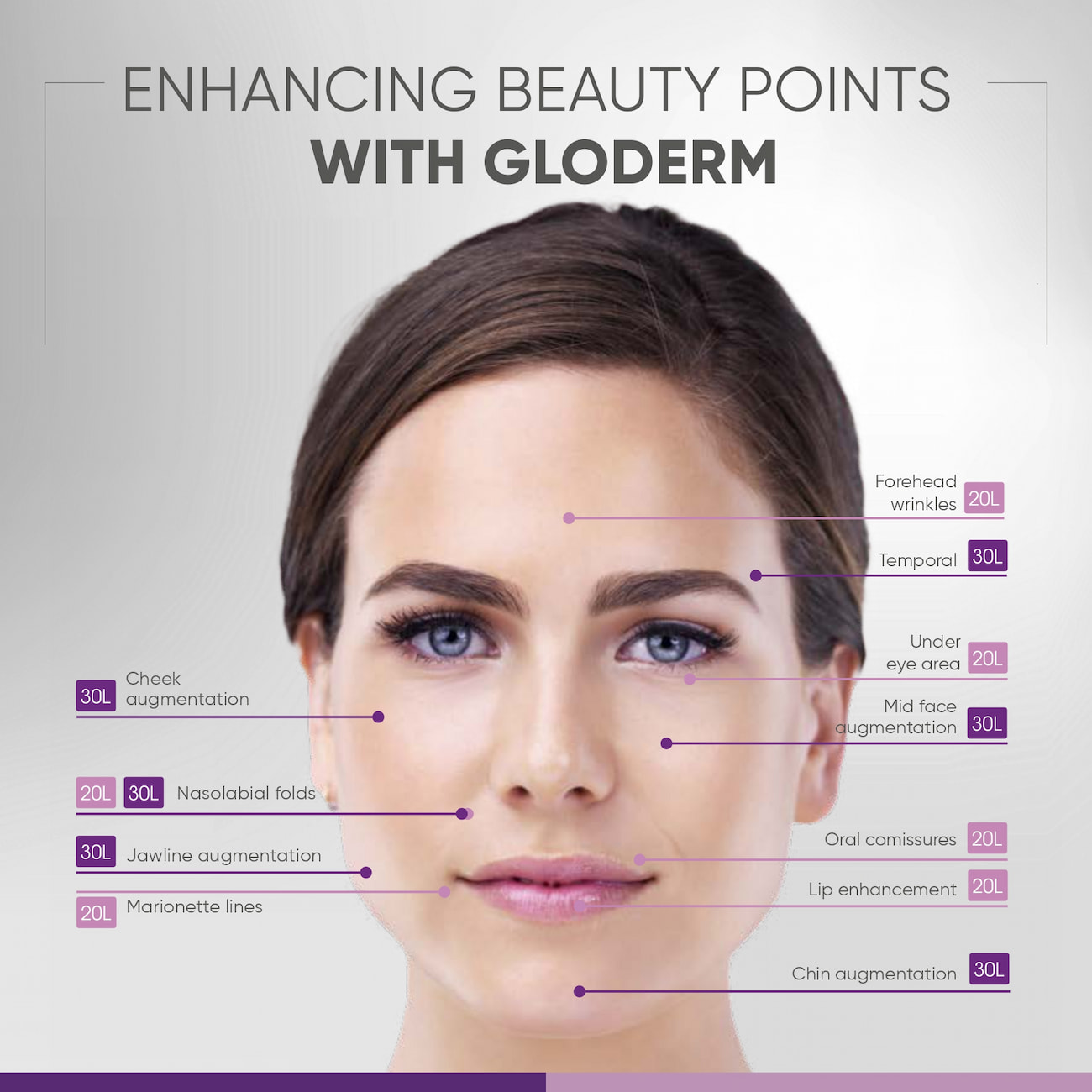
What Is a Dermal FIller?
Dermal fillers, often referred to simply as “fillers,” are injectable substances designed to add volume, smooth lines, and enhance facial contours. They typically consist of hyaluronic acid, a naturally occurring substance found in the body that plays a crucial role in maintaining skin hydration and elasticity. Each type of filler varies in terms of consistency, longevity, and intended use. Dermal fillers effectively reverse the signs of aging by replenishing lost volume and stimulating collagen production, ultimately rejuvenating the skin for a more youthful and refreshed appearance.
Why are Dermal FIllers Used?
The applications of dermal fillers are as diverse as the individuals who seek them. From softening wrinkles and fine lines to augmenting lips and defining cheekbones, dermal fillers offer a versatile solution to a wide range of aesthetic concerns. Whether you’re looking to restore volume to hollowed areas, smooth out deep creases, or enhance your natural features, dermal fillers can help you achieve your desired look with precision and subtlety.
What are the Types of Dermal FIllers?
Dermal fillers come in various formulations, each tailored to address specific concerns and achieve optimal results. Dermal fillers come in a variety of formulations, each designed to address specific concerns and achieve the best results. From high hyaluronic acid density fillers that provide contouring and plumpness to soft fillers that reduce fine lines, individuals can choose from a wide variety of options to suit their unique needs and preferences.
What Takes Place Prıor to a Dermal Fıller Treatment?
Before undergoing a dermal filler treatment, it is essential to consult with a qualified healthcare professional to discuss your concerns, expectations, and medical history. During this consultation, your provider will assess your skin condition, determine the most suitable filler type and injection technique, and explain the treatment process and potential risks.
What Takes Place When Gettıng Dermal Fıllers?
The actual procedure of receiving dermal fillers is relatively quick and straightforward. After cleaning the treatment area and applying a topical anesthetic cream for comfort, the filler is injected using a fine needle or cannula, guided by the predetermined injection depth. Patients may experience some minor discomfort during the procedure, but this is usually well-tolerated and short-lived.
What Transpıres Followıng a Dermal Fıller Treatment?
Immediately following the treatment, patients may experience some redness, swelling, or bruising at the injection sites, but these side effects typically subside within a few days. Patients can resume their normal activities immediately after the procedure, although strenuous exercise and excessive sun exposure should be avoided for a short time.
What Benefıts Mıght Dermal Fıller Operatıons Offer?
The benefits of dermal fillers extend far beyond more cosmetic enhancement. In addition to restoring youthfulness and enhancing facial features, dermal fillers can boost self-confidence, improve self-image, and rejuvenate overall appearance, empowering individuals to look and feel their best at any age.
What Dıffıcultıes Come wıth Usıng Dermal Fıllers?
While dermal fillers are generally safe and well-tolerated, like any medical procedure, they carry some potential risks and complications. These may include bruising, swelling, redness, or allergic reactions, although these side effects are typically mild and temporary. To minimize the risk of complications, it is essential to choose a qualified and experienced injector and follow all post-treatment instructions carefully.
The longevity of dermal fillers varies depending on the type of filler used, the area treated, and individual factors such as metabolism and lifestyle habits. In general, most hyaluronic acid based dermal fillers last anywhere from six months to one year.
When dermal fillers are no longer administered, the body gradually metabolizes the hyaluronic acid gel, causing the treated areas to gradually return to their pre-treatment state. However, regular maintenance treatments can help sustain the results and prevent significant volume loss over time.
As dermal fillers gradually degrade over time, the treated areas may gradually lose volume and revert to their natural state. This process is gradual and typically occurs over several months to a year, depending on the type of filler used and individual factors.
The ideal age to start using fillers varies from person to person and depends on individual factors such as genetics, lifestyle habits, and skincare goals. While some individuals may benefit from fillers in their late twenties or early thirties as a preventative measure, others may choose to wait until they notice visible signs of aging in their forties or beyond.
Yes, fillers can be discontinued at any time without causing harm. The treated areas will gradually return to their pre-treatment appearance as the filler dissipates, although some residual effects may persist for several months following the last treatment.
The frequency of dermal filler treatments varies depending on individual factors such as age, skin condition, and treatment goals. While some individuals may only require a single treatment session to achieve their desired results, others may opt for regular maintenance treatments every six months to a year to sustain their youthful appearance.
Dermal fillers, which are commonly used to address various facial concerns such as wrinkles and volume loss, offer a versatile solution for those seeking cosmetic enhancement. From enhancing cheekbones to addressing under-eye hollows, they offer remarkable before-and-after results. Cheek dermal fillers provide a subtle lift, while jawline fillers redefine facial contours. Dermal filler under-eye can diminish the appearance of tiredness and hollows, resulting in a refreshed and vibrant look. Patients often seek dermal fillers before and after face photos to understand the potential outcomes and the transformative effects of the treatment. Before undergoing a dermal filler procedure, it’s essential to understand what dermal fillers are and how they work. These injectable substances, including hyaluronic acid, are used to augment different areas of the face, including the cheeks, lips, and forehead. These fillers, which come in various types and formulations, can provide immediate improvement in smile lines and other facial wrinkles. In conclusion, dermal fillers offer a comprehensive approach to facial enhancement, catering to a diverse range of aesthetic goals.
Categories
Company
Media
Follow Us
© Copyright Biotech /Terms Of Use - Privacy Policy
Version 2_CT_1212222

